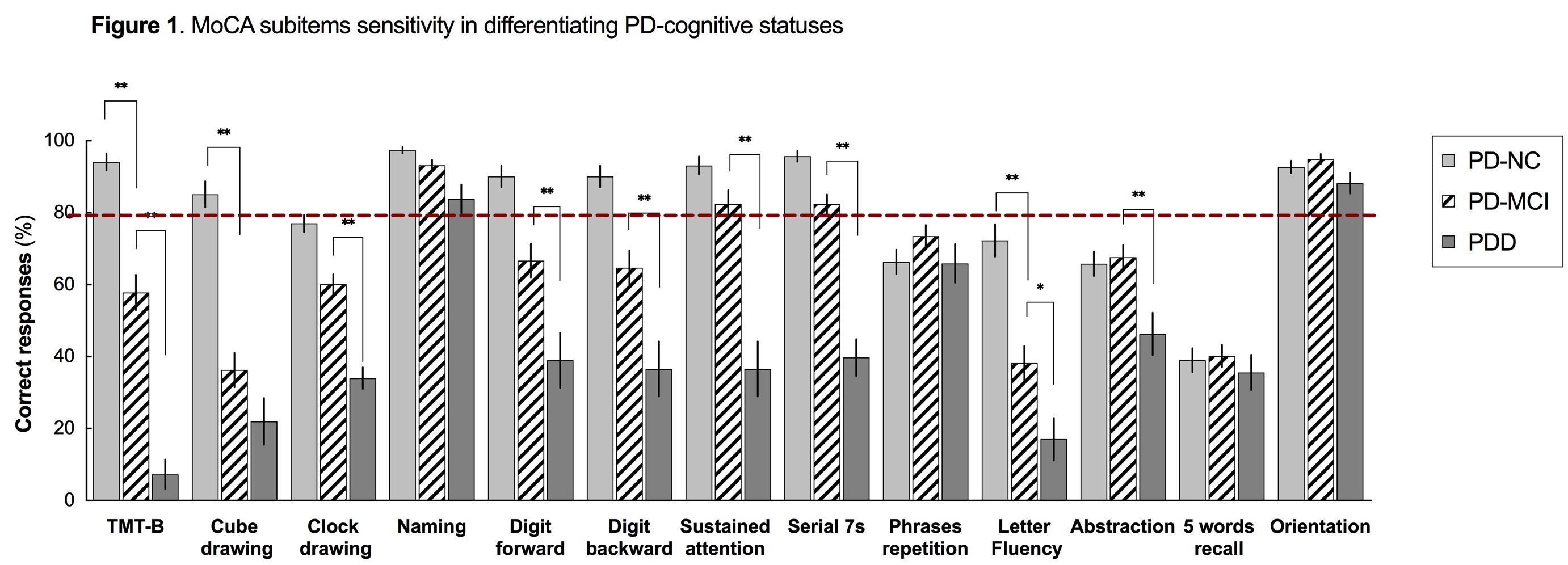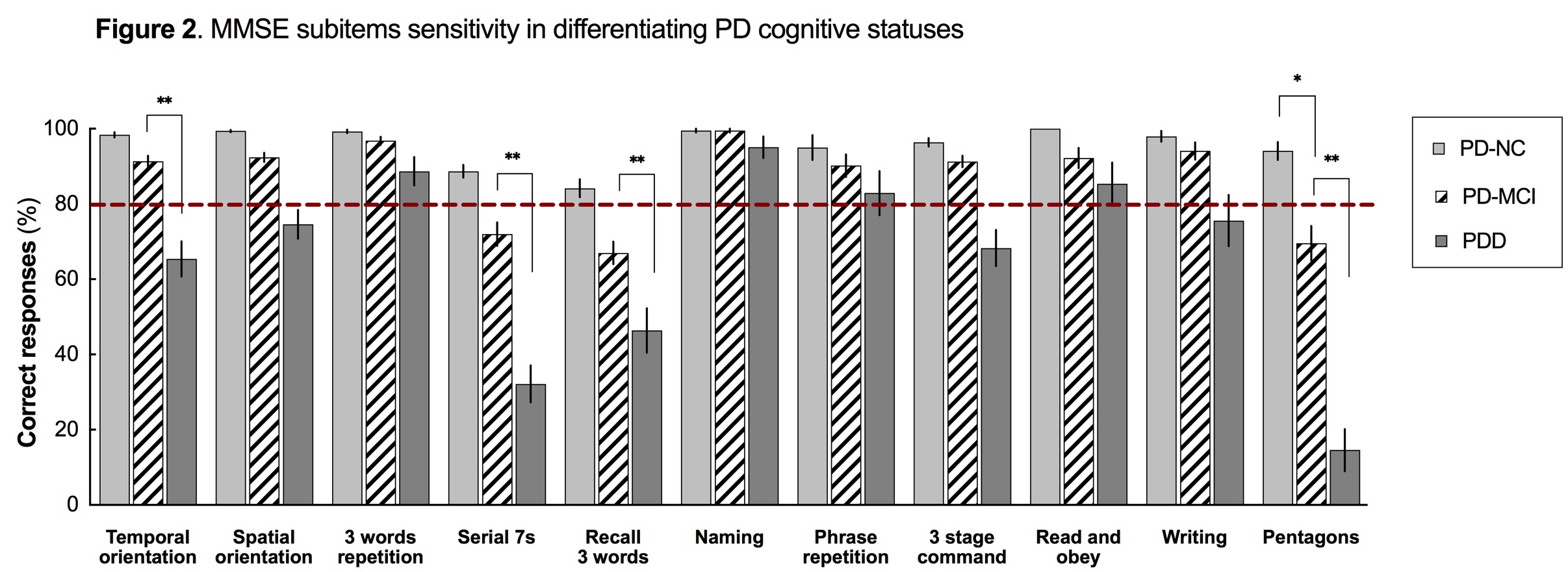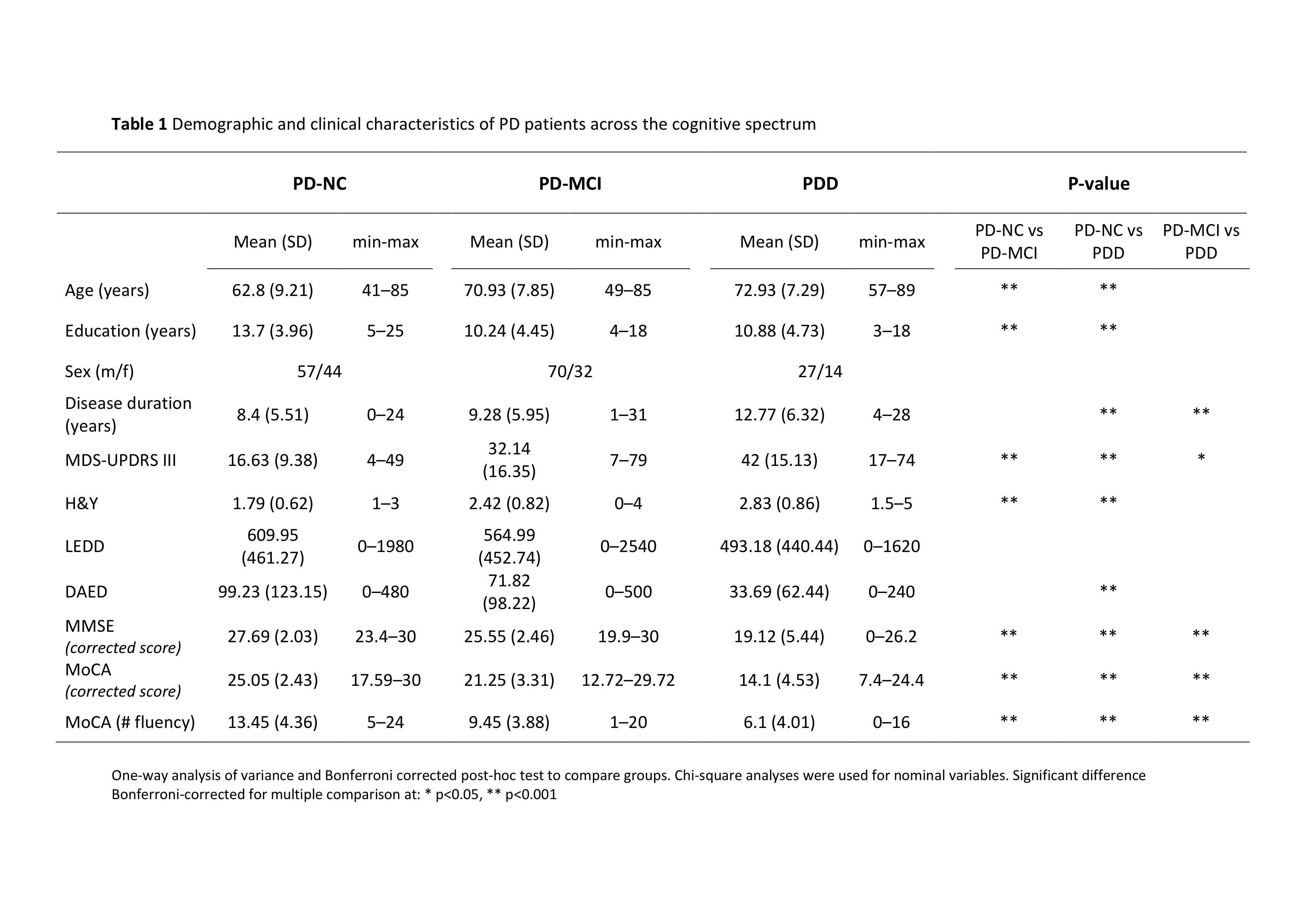Category: Parkinson's Disease: Cognitive functions
Objective: To determine which Montreal Cognitive Assessment (MoCA) and Mini-Mental State Examination (MMSE) subitems are more sensitive in detecting cognitive abnormalities in patients with PD across the entire cognitive spectrum, ranging from PD with normal cognition (PD-NC), mild cognitive impairment (PD-MCI) and dementia (PDD).
Background: MOCA has been identified as more sensitive than the MMSE in detecting cognitive deficits in non-demented PD [1], because it lacks both ceiling and floor effects and its more challenging, given its attention-executive subitems. By contrast, MMSE seems to be more suitable to assess PD cognitive changes over the disease course [1]. However, most sensitive subitems for the differentiation of PD-cognitive statuses are are not well defined.
Method: A convenient sample of 244 PD patients was cognitively characterized based on a Level-II cognitive evaluation, resulting in: 101 PD-NC, 102 PD-MCI and 41 PDD. MMSE and MoCA were administered in a random order. We assessed between-group differences for MMSE, MoCA, and their subitems through ANCOVA models, while considering age and education as nuisance variables. We excluded those subitems showing a ceiling or floor effect (with a correct performance >80% or <20% across PD-cognitive statuses). Moreover, we applied a conservative approach, considering only those subitems with a >20% difference range between cognitive statuses.
Results: Demographics and clinical characteristics are shown in [table1]. Three out of 13 MoCA subitems differentiated PD-NC from PD-MCI: TMT-B, the cube drawing and the letter fluency subitem [figure1] while in MMSE, only the pentagons’ copy subitem distinguished PD-NC vs. PD-MCI [figure2].
Eight MoCA subitems were the most sensitive in differentiating PD-MCI vs. PDD: TMT-B, the clock drawing, the digit back/forward, sustained attention, serial-7, the letter fluency and abstraction [figure1]. While in MMSE, temporal orientation, serial-7, 3-word recall and the pentagons’ copy [figure2]. Of note, only the 7% of PDD patients was able to complete the TMT-B subitem.
Conclusion: We identified most sensitive MMSE and MoCA subitems for screening and monitoring PD-cognitive progression. These findings could shed new light on the development of a PD-specific brief cognitive scale with good psychometric properties.
References: [1] Biundo, R., Weis, L., Bostantjopoulou, S., Stefanova, E., Falup-Pecurariu, C., Kramberger, M. G., … & Aarsland, D. (2016). MMSE and MoCA in Parkinson’s disease and dementia with Lewy bodies: a multicenter 1-year follow-up study. Journal of neural transmission, 123(4), 431-438.
To cite this abstract in AMA style:
E. Fiorenzato, L. Zurlo, C. Cianci, M. Garon, T. Gandolfi, F. Pistonesi, L. Weis, A. Antonini, R. Biundo. MoCA and MMSE subitems’ sensitivity across the PD-cognitive spectrum [abstract]. Mov Disord. 2022; 37 (suppl 2). https://www.mdsabstracts.org/abstract/moca-and-mmse-subitems-sensitivity-across-the-pd-cognitive-spectrum/. Accessed April 21, 2025.« Back to 2022 International Congress
MDS Abstracts - https://www.mdsabstracts.org/abstract/moca-and-mmse-subitems-sensitivity-across-the-pd-cognitive-spectrum/



